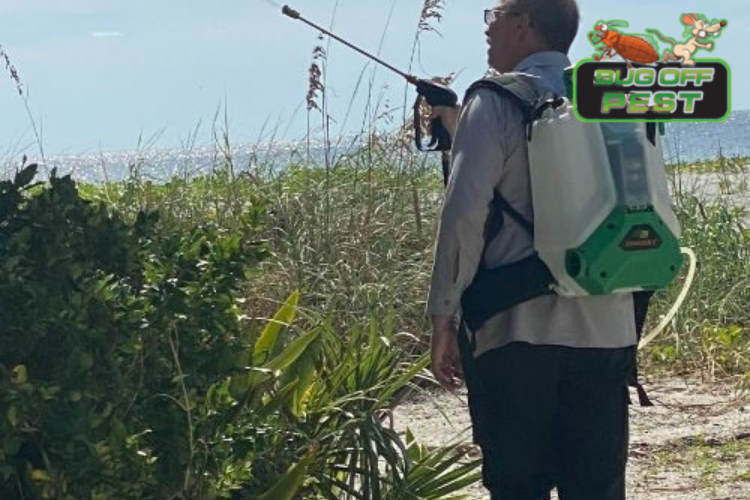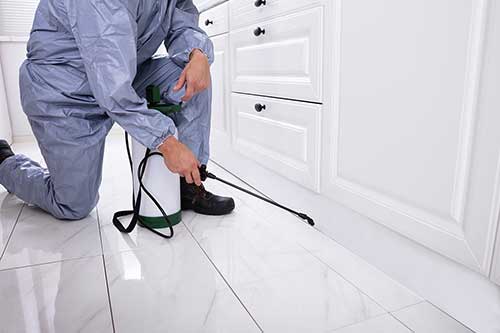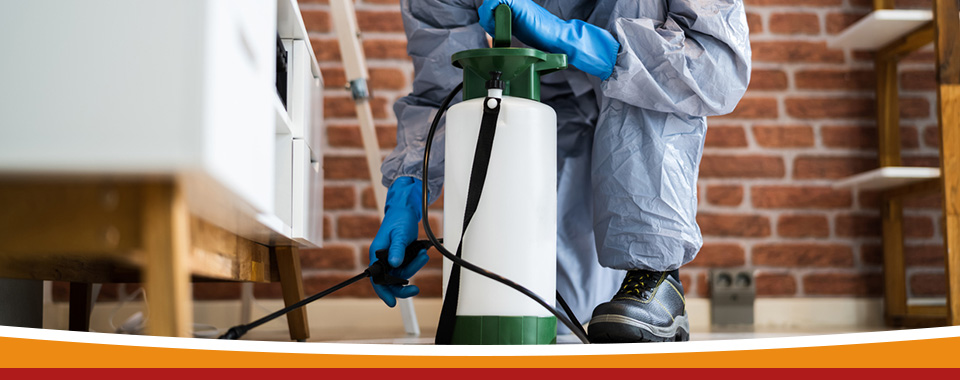Mosquito Extermination with Port Charlotte Pest Control Service
Uncover the Significance of Pest Control in Keeping a Healthy And Balanced Environment and Treatment Methods
Insect control plays a crucial role in securing not only human health and wellness yet also the fragile equilibrium of our ecological communities. The existence of bugs can bring about significant wellness risks, including the transmission of conditions and the aggravation of allergic reactions. Various therapy methods, particularly Integrated Parasite Monitoring (IPM), use a complex approach to efficiently manage and mitigate these threats. As we explore the effects of insect control techniques, it comes to be vital to consider both the instant advantages and the lasting sustainability of our atmosphere. What strategies may be most reliable in accomplishing this equilibrium?
The Function of Pests in Environments
Bugs, typically seen entirely as nuisances, play a multifaceted duty in ecosystems that is important for preserving environmental equilibrium. They contribute significantly to various ecological procedures, consisting of pollination, vitamins and mineral cycling, and parasite control. Many insect types, such as and butterflies, are important pollinators for a vast range of plants, which in turn supports biodiversity and food manufacturing.
Furthermore, pests act as victim for many predators, creating an important link in food internet. This interdependence guarantees the survival of numerous species and aids control populaces within environments. In addition, decomposer bugs, such as certain beetles and fungi, are crucial in damaging down natural matter, thus improving dirt and facilitating nutrient recycling.
Alternatively, while bugs can be valuable, their overpopulation or intrusion into non-native atmospheres might interfere with these ecological features. This intricacy emphasizes the value of understanding insect characteristics, as reliable bug monitoring methods have to take into consideration both their environmental roles and possible effect on human activities. Balancing pest existence while decreasing damage is crucial for preserving the honesty of environments and making sure agricultural efficiency.
Health Dangers Connected With Parasites

The presence of bugs in various settings expands past their ecological duties, as they additionally pose significant health dangers to people and pets. Several parasites, consisting of rats, insects, and bloodsuckers, are providers of illness that can have major health ramifications. As an example, rodents are recognized to transfer hantavirus and leptospirosis, both of which can cause severe respiratory and kidney concerns, respectively.
Pests such as insects and ticks are infamous for spreading out vector-borne illness like malaria, dengue fever, and Lyme disease. These diseases can lead to high morbidity and mortality prices, especially in vulnerable populaces. Furthermore, bugs like cockroaches and vermins can aggravate allergic reactions and asthma, adding to respiratory problems in people, particularly those with pre-existing conditions.
In addition, the existence of insects can result in mental tension and pain, affecting total well-being. Contamination of food and surface areas by bug droppings and remains can lead to foodborne health problems, highlighting the value of preserving hygienic conditions - Pest Control in Port Charlotte, FL. Consequently, understanding the wellness threats associated with pests is essential in recognizing the requirement of reliable pest monitoring strategies to safeguard human and animal wellness.
Advantages of Efficient Insect Control
Reliable pest control is important for preserving a healthy and safe atmosphere, as it continually reduces the many risks associated with pest problems. One of the main benefits of effective parasite monitoring is the decrease of health and wellness threats.

An additional considerable benefit is the renovation of overall high quality of life. A pest-free visit site setting adds to mental well-being and minimizes anxiety connected with infestations. Reliable parasite control promotes a much safer atmosphere for youngsters and pet dogs, guaranteeing that homes remain sanctuaries cost-free from damaging chemicals and disease-causing organisms.
Common Pest Control Techniques
In the world of bug monitoring, various strategies are utilized to deal with invasions successfully. These techniques can be extensively categorized into three major strategies: social, mechanical, and chemical controls.
Social control entails customizing techniques to minimize bug facility, reproduction, and survival. This might include crop rotation, proper hygiene, and habitat manipulation, which collectively create a setting much less for pest expansion.
Mechanical control utilizes physical techniques to remove insects. Techniques such as catches, obstacles, and vacuums are commonly made use of to straight eliminate pests from a location. This approach is especially effective for handling rats and insects without making use of damaging chemicals.
Chemical control entails the application of pesticides to handle bugs. These compounds can be categorized into insecticides, herbicides, continue reading this and fungicides, each targeting specific sorts of parasites. It is vital to make use of these chemicals deliberately, sticking to security standards and policies to lessen possible damage to non-target species and the environment.
Each parasite control strategy has its advantages and limitations, and typically, an integrated technique combining multiple approaches produces the most effective lead to keeping a pest-free environment.
Sustainable Parasite Management Practices

Integrated Pest Administration (IPM) is a cornerstone of lasting practices, incorporating organic, cultural, mechanical, and chemical tactics to manage parasites. Organic control involves presenting all-natural predators or bloodsuckers to suppress bug populaces. Cultural practices, such as crop turning and polyculture, interfere with pest life process and boost ecosystem strength.
Mechanical methods, such as catches or obstacles, can effectively protect against parasite accessibility without chemical treatment (Pest Control in Port Charlotte, FL). Additionally, maintaining healthy ecosystems through correct soil management, plant health, and biodiversity can naturally mitigate parasite problems
Education and recognition are crucial components, empowering people and neighborhoods to identify insect dangers early and apply preventive actions. By cultivating an all natural technique that balances parasite control with environmental integrity, sustainable bug management techniques not only shield crops and structures but also add to a much healthier environment for future generations.
Conclusion
Effective insect control is important for securing public health and wellness and preserving eco-friendly balance. By understanding the duty of bugs, acknowledging affiliated health threats, and using varied treatment techniques, a lasting method to pest administration can be achieved. Integrated Bug Monitoring (IPM) emphasizes an alternative methodology published here that minimizes damage to useful organisms while properly controlling parasite populations - Pest Control in Port Charlotte, FL. Eventually, responsible bug management cultivates a much healthier environment, promoting both human wellness and the stability of communities.